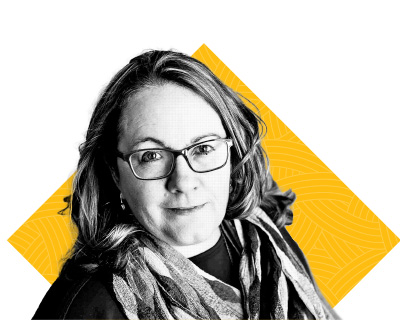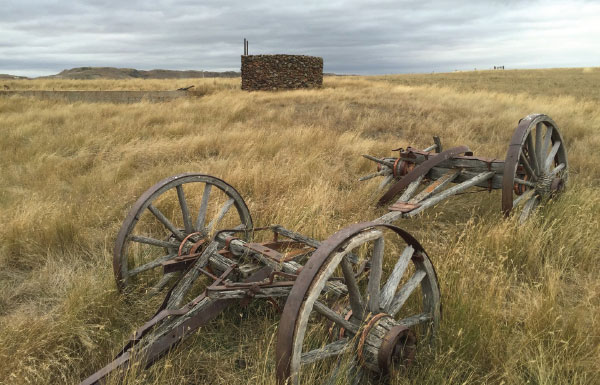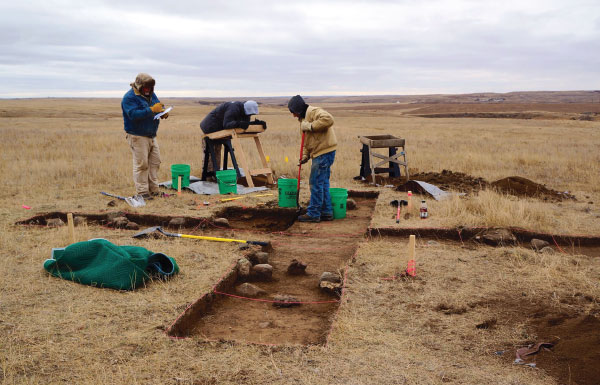Juniper Environmental
Location: Bismark, North Dakota
Industry: Environmental Consulting
Website: juniperenvironmental.com
Leadership: Woman-owned
ICIC Program: Goldman Sachs 10,000 Small Businesses National Cohort 3 (2015)

Preserve
North Dakota native, Beth Nodland, has transformed her love and respect of local culture, Native American history, and community into a thriving environmental contracting firm
Beth Nodland grew up in North Dakota and worked all over the world before returning to the Badlands of her home state where she found her calling in preserving the region’s rich history and culture.
“I love the history of this area,” Nodland explains. “I wanted to start a company that provided jobs for archaeologists and take into account every cultural resource before it was destroyed. I wanted to save these cultural resources.”
From that passion, Juniper Environmental was born in 2007, the only certified woman-owned environmental and cultural consulting firms in North Dakota. Today, the company has 15 employees who conduct ecological, environmental, and geological studies; consult on water resources, infrastructure, and transportation planning; and the use of geospatial technologies.
From Detroit to Tulsa to Denver to Utah to Dallas, Juniper Environmental consults with government agencies, energy companies, developers, and others to ensure that natural and cultural resources are protected during major construction and infrastructure projects.

Nodland was born and raised in Bismarck, North Dakota, before leaving to work in political organizing in Washington, D.C. She worked for the Washington professional football team (now known as the Washington Commanders) and taught English in Czechoslovakia before going back to school for archeology and anthropology at the University of Minnesota, then attending graduate school at the University of Wisconsin.
After finishing graduate school, she ran an environmental nonprofit in Minneapolis for 15 years and was CEO of an environmental consulting firm for five years. It was all rewarding work, but she felt a calling to return to her hometown and use her expertise to protect the landscape and culture that she knew so well and loved.
“I started and ran some companies for other people, but I finally decided I needed to do it for myself,” she remembers.
“I love the history of this area, I wanted to start a company that provided jobs for archaeologists and take into account every cultural resource before it was destroyed.”
BETH NODLAND, PRESIDENT, JUNIPER ENVIRONMENTAL
Supporting Families
She also became a mother at age 47 to a son with Down Syndrome, so running her own business at home allowed her the flexibility to support her child’s special needs. In building Juniper, which was named after an art gallery she founded years earlier, she wanted to ensure it was a supportive environment for employees with family obligations.
“I wanted to work at a place that was family friendly,” she says. “I needed it to be very flexible. And I want that for everyone. It was a way for me to focus on family and focus on the future and preserve the cultural resources of this area.”
The business formed during an oil boom in North Dakota that included massive energy companies descending on the rural state to build pipelines, transmission lines, water treatment facilities, and other major infrastructure projects that not only disrupted the serenity of the Badlands, but also threatened to displace communities, destroy irreplaceable historical sites and artifacts, and erase Native American history.

“I have always loved the Native American history. Along the Missouri River there were large villages with thousands of people in the Bismarck area. It was home to 15,000 residents in the 1500s,” she explains. “For me to learn there was this kind of agricultural and trade community there so long ago, is very interesting to me. It’s my landscape too, so it was interesting to learn that deep history that wasn’t being taught. I love the landscape and wanted to be working in it every day.”
Being a woman in the male-dominated industries of oil, energy, government, and archeology has posed formidable challenges. Being a native of the Bismarck area, she is used to men overlooking women in business but she asserts herself when needed and leans on her male colleagues for assistance when necessary. Financing, as with any small business, has also been challenging, especially for Juniper, which relies on long-term, often government-funded projects where the checks are frequently slow to come.
“I wanted to work at a place that was family friendly.” she says. “I needed it to be very flexible. And I want that for everyone. It was a way for me to focus on family and focus on the future and preserve the cultural resources of this area.”
BETH NODLAND, PRESIDENT, JUNIPER ENVIRONMENTAL
The ICIC Difference
She was introduced to ICIC through Goldman Sachs 10,000 Small Businesses Program, which helped her cope with agonizing delays in payments from large corporations and government agencies.
“Cash flow is super hard, like a lot of small businesses,” she says. “We are fronting a lot of business for large international energy companies. We get hired and do our field work and write a report and submit an invoice and they take 60 or 90 or 120 days. And then it goes to a commission for approval and then it works its way back. I got a lot of help from (ICIC) instructors on how to manage that slow cycle.”
ICIC also assisted her in growing the business, including purchasing a historic building in downtown Bismarck that now serves as Juniper’s headquarters. She purchased a commercial building that had a history of being a former military building as well as being tied to the region’s Wild West history. She became the first North Dakota business to go through ICIC’s programs.
“We were just overwhelmed. I had hundreds of projects going on and I needed help,” she says. “What it did was it gave me the tools I needed at that moment to brave the onslaught of the oil boom. All the big firms came into town and opened offices and started trying to undercut us. The program helped us compete at that level, against these big firms.”

She’s since attended ICIC sessions in Washington, D.C. and has collaborated with other North Dakota businesses that have since joined. She also remains engaged with ICIC through online programs.
“Having access to the online cohort has been really important to be able to reconnect and reunite with people. It’s not like it’s one and done. You get to keep reconnecting,” she said. “I feel like at various points, the program has invited me to reengage with the whole process and think about it again. There have been several times where I have revisited the goals that I set in that (first) program. It keeps re-inspiring me.”
“We were just overwhelmed. I had hundreds of projects going on and I needed help,” she says. “What it did was it gave me the tools I needed at that moment to brave the onslaught of the oil boom. All the big firms came into town and opened offices and started trying to undercut us. The program helped us compete at that level, against these big firms.”
BETH NODLAND, PRESIDENT, JUNIPER ENVIRONMENTAL
